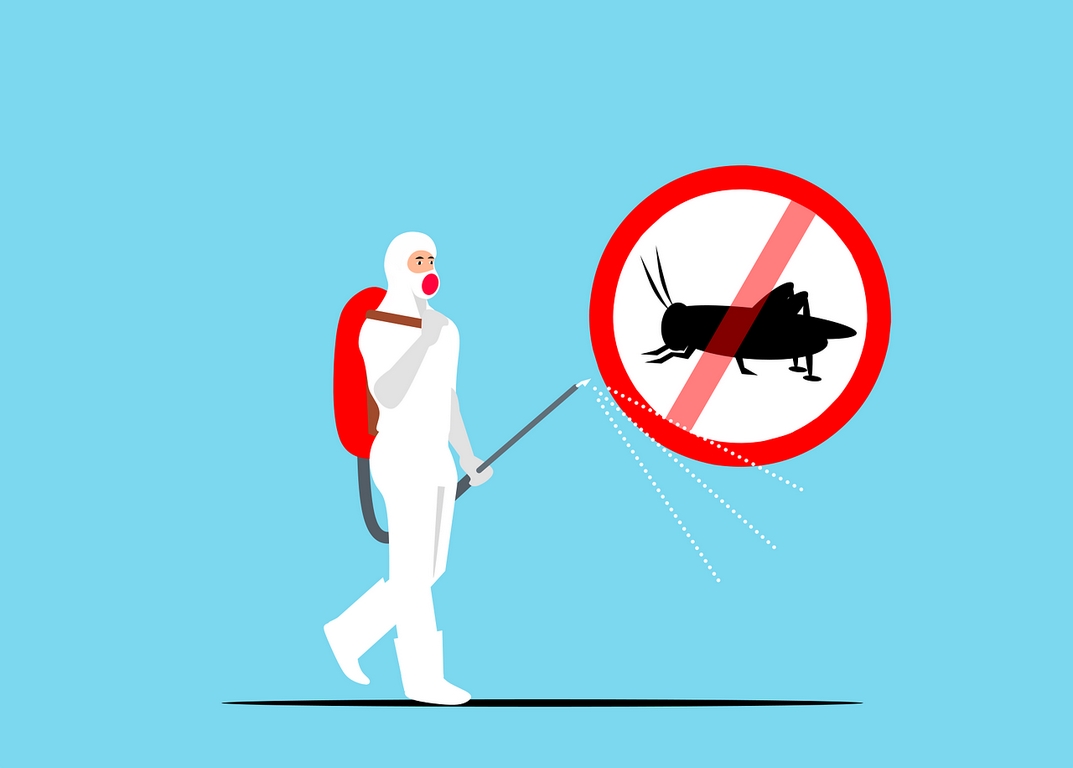Pests can be a real nuisance to homeowners, especially if there is evidence of an infestation.

Having your home plagued by insects and other bugs might lead you to think that it would have been easier if you had never moved in the first place.
However, did you know that the majority of pest problems can be avoided with a few straightforward tips? If you aren’t sure what steps you should take to avoid pest infestations, Pelican Pest Control here has 15 tips for you.
Keep Your Home Cleaner
The main thing that attracts pests to your home is food and water. If they don’t find these things in your house, they won’t want to stick around.
Do your best to keep your kitchen clean and put food away as soon as possible after eating. Sweep up crumbs often and put dishes in the sink right after using them.
You should also store all dry goods in plastic containers with tight-fitting lids instead of leaving them out on the counter or in cabinets.
Managing Trash
To keep rodents away, store garbage in containers with tight-fitting lids and place them outside in an area that’s as far from your home as possible.
Don’t let trash pile up against the side of your house, either inside or outside, because it can attract bugs and rodents.
Read Also:
Drying Up Dump Spaces
The biggest attraction for pests is moisture. Hence, keeping your home as dry as possible is a great way to ensure that they stay away.
All areas that have the potential to accumulate water must be inspected regularly. This includes sinks, bathtubs, and toilets. Also, ensure that any leaking pipes are fixed immediately.
Trimming Trees and Shrubs
Trees, hedges, and shrubs often provide pests with an alternate home close to yours. Hence, it would be a good idea to keep your garden de-cluttered and trimmed.
Trees should be trimmed off of the roof and walls of the house as this will serve as an entry point for pests.
Ventilating Crawl Spaces
Moisture can easily collect in crawl spaces or basements. Hence, it is important to inspect these areas regularly and take measures such as installing vents to ensure proper ventilation. If required, you may also want to hire professionals for basement waterproofing services.
Seal Cracks and Crevices
Pests can enter your home through small cracks and crevices in your walls or foundation. If a pest enters your home through a crack or crevice, it will have an opportunity to build a nest inside your walls that will be difficult to reach or detect without professional help. To prevent this from happening, seal cracks and crevices in your home’s foundation.
Place Screens Over Vents and Windows
Screens are a great way to keep out flying insects like mosquitoes and nuisance animals like birds and bats.
The screening will also prevent rodents from entering structures by climbing up walls that are adjacent to trees or other landscaping features that lead directly to the roofline or attic space of a building. When installing screens on windows and doors, be sure they fit snugly.
Clean Pet Food Dishes Regularly
If you have pets, you probably regularly fill their bowls with food and water, but it’s important to remember to clean them daily.
Pests are attracted by the scent of pet food, so if you leave even a small amount in a bowl especially outdoors pests will find it quickly.
Store Food Properly
Pests are attracted to food left out on counters or in open containers. If you’re eating dinner and leave leftovers sitting on the table, don’t be surprised if roaches or ants start showing up.
Make sure your food is properly stored so that no bugs can get into it. If possible, storing it in the refrigerator will help make sure it stays fresh longer than if it’s left on the countertop.
Inspect New Purchases
Before bringing new furniture or other items into your home, inspect them for signs of bed bugs and other pests.
The furniture inside storage centers is a common source of bedbugs, so it’s important to wipe down any item kept in storage before bringing it into your home.
If you’re purchasing a used item, inspect it closely both inside and out to ensure no unwanted critters are hitching a ride.
Remove Standing Water
Pest control experts agree that the best way to prevent mosquitoes is by eliminating standing water around the yard. Mosquitoes need water for their eggs to hatch, so standing water provides an ideal breeding ground for these bugs.
Check your yard regularly for standing water, especially after a rainstorm or when watering the lawn. Remove any excess water from pools or containers promptly to keep mosquitoes from taking root in your yard.
Declutter
Pests love cluttered homes and basements. By keeping clutter under control, you can reduce their hiding places.
Store old clothes, linens, and books in plastic containers with tight-fitting lids; this will keep them out of reach from pests that eat fabric and paper.
Also, avoid storing boxes on the floor in attics or basements; consider using shelving for better organization and easier cleanup.
Firewood Storage
Firewood should be stored in a completely dry location, far away from the exterior of your house. This will keep pests such as mice and insects away from the exterior of your home and make it less likely that they will enter through cracks or gaps in your home’s foundation.
Invest in High-Quality Mulch
Make sure that your mulch is made of a durable material with few to no organic materials. Organic mulches like wood chips and bark are great for aesthetics and plant health, but they can also attract pests like ants, termites, or carpenter bees.
Treat Your Pets for Fleas and Ticks
Pet owners might want to treat their pets for fleas and ticks even if they are not experiencing a problem themselves.
If your pet goes outdoors frequently, it’s almost inevitable that it will encounter pests at some point and those pests will try to come home with your pet.
By treating your pet for fleas and ticks, you may be able to avoid an infestation altogether. Keep up with routine treatments as recommended by your vet or groomer.
Pest control should not be taken lightly by any homeowner. Pests can cause serious damage to your home and belongings and pose health risks to you and your family. Follow this pest control guide and keep pests away from your house.









